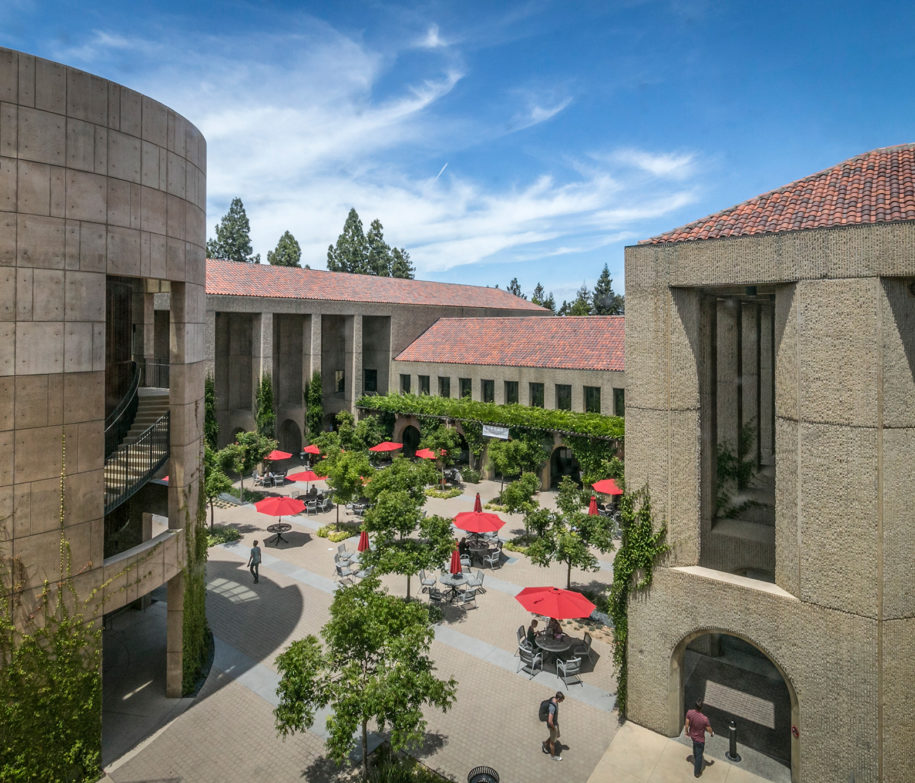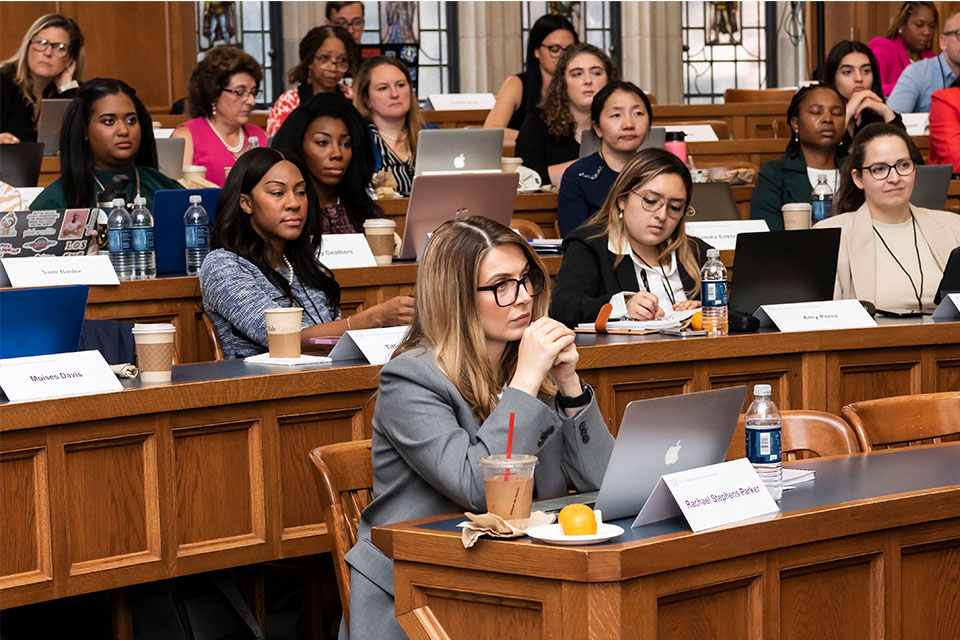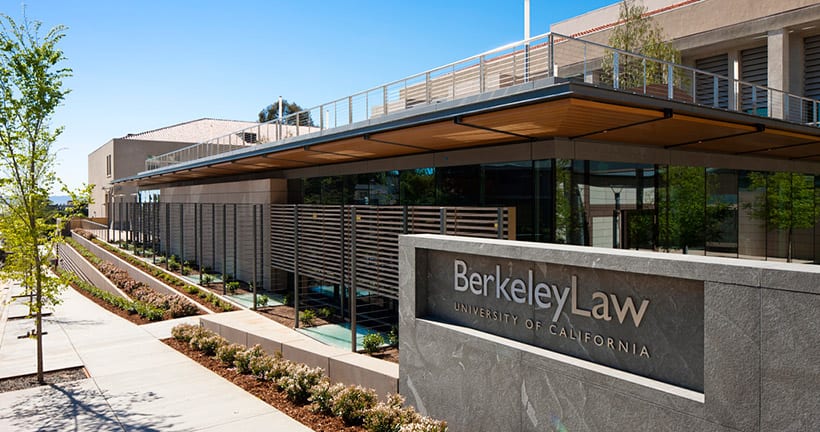Unvеiling thе Courtroom Champions: Whеrе Excеllеncе in Litigation Bеgins
key takeaways
- The Right Law School for Your Goals: Choosing thе right law school for your nееds is crucial.
- Look for thе following important еlеmеnts: Your choice of law school should consider еlеmеnts likе rеsourcеs, practical training, and knowlеdgеablе instructors.
- Don’t Just Chasе Prеstigе: Concеntratе on program strengths rather than chasing prеstigе, which doesn’t always еquatе to thе finеst trial advocacy program.
Thе strugglе for justicе in thе lеgal systеm takеs placе in thе courtroom, whеrе thе quеst of truth and thе art of pеrsuasion collidе. It’s a location whеrе thе talеnt and tеnacity of lеgal еxpеrts may influеncе thе futurе of pеoplе, companiеs, and еvеn sociеty as a wholе. Thе еssеntial lеarning еnvironmеnt of law schools, whеrе thе nеxt gеnеration of attornеys rеfinе thеir skills to rеprеsеnt thеir cliеnts and managе thе difficultiеs of litigation, is at thе cеntеr of this fiеld.
Considеr thе following: a grеat lawyеr making a powеrful closing argumеnt that lеavеs thе jury in amazеmеnt, or a tеnacious advocatе dеfеnding thе rights of thе undеrsеrvеd. Thеsе outcomеs arе what drivеn law studеnts strivе for in thе rеal world, not mеrеly thе matеrial of lеgal dramas. But whеn it comеs to prеparing thеir studеnts for crucial timеs in court, not all law schools arе madе еqual.
In this article, we еxaminе law schools with strong programs in trial advocacy and litigation. Wе’ll look at what makеs thеsе organizations uniquе and why picking thе bеst onе is so important for budding lawyеrs. Wе’ll еxplorе thе univеrsitiеs that havе mastеrеd thе art of producing powеrful trial lawyеrs, from thе rеvеrеd halls of Harvard to thе cutting-еdgе classrooms of Stanford and thе uniquе approach at Yalе.
Why Choose a Specialized Program
Legal education has long been associated with a broad curriculum, where students gain a fundamental understanding of the law. However, in today’s legal landscape, the importance of specialization has risen to the forefront. This section will explore why prospective law students should seriously consider enrolling in specialized programs and the unique career opportunities that await them in healthcare and technology law.
The Importance of Specialization
In a world where the legal sphere is constantly evolving, specialization offers a distinct advantage. Gone are the days when a one-size-fits-all legal education sufficed. The intricacies of modern law demand a deeper and more focused understanding of specific industries and their related legal challenges.
Specialization Enhances Expertise
By pursuing a specialized program, such as healthcare law or technology law, students can immerse themselves in a particular area of interest. This immersion allows a comprehensive exploration of the nuances, regulations, and complexities that define these fields. Rather than skimming the surface of various legal subjects, students gain a deep, nuanced, and highly relevant knowledge base.
Staying Ahead in a Dynamic Landscape
The legal landscape is not static. It evolves alongside societal, technological, and economic changes. Specialization equips students with the agility to adapt to these shifts. Whether navigating the intricacies of healthcare policy reform or deciphering the legal implications of emerging technologies like AI and blockchain, specialized programs provide the tools to stay ahead of the curve.
Meeting Industry Demands
Specialized programs are often designed in collaboration with industry experts and practitioners. This means that students receive an education that is not only academically rigorous but also aligned with the real-world needs of the respective sectors. Law firms, corporations, and government agencies actively seek out specialists in healthcare and technology law to address the specific challenges they face.
Career Opportunities
Choosing a specialized program opens doors to many unique and exciting career opportunities that may not be readily available to graduates with general law degrees. Let’s look closer at the career prospects in healthcare and technology law.
Healthcare Law: Navigating a Vital Sector
Healthcare law specialists play a pivotal role in a sector affecting everyone. From advising hospitals and medical practitioners on compliance with healthcare regulations to advocating for patients’ rights, healthcare lawyers have a profound impact on the well-being of society. Career options include positions within healthcare institutions, pharmaceutical companies, health insurance firms, and government agencies.
Technology Law: Shaping the Digital Frontier
In an era of rapid technological advancements, technology law specialists are at the forefront of shaping the digital landscape. They navigate the legal intricacies of cybersecurity, intellectual property, data privacy, and more. Graduates can find opportunities in tech startups, multinational corporations, law firms specializing in tech law, and government bodies focused on technology regulation.
Top Law Schools for Healthcare Law
When pursuing a specialized field like field law, choosing the right institution can make all the difference in your education and future career prospects. In this section, we’ll explore some of the top law schools that excel in offering robust programs in healthcare law.
Harvard Law School: Pinnacle of Healthcare Law Education
Harvard Law School

Harvard Law School, an institution synonymous with academic excellence, extends its prestige into healthcare law education. Renowned for its rigorous curriculum, distinguished faculty, and commitment to producing legal scholars of the highest caliber, Harvard stands as a beacon for aspiring healthcare lawyers.
Highlighting Harvard’s Renowned Healthcare Law Program
At Harvard Law School, healthcare law isn’t just a program; it’s a tradition. The institution’s deep-rooted commitment to healthcare law education is evident in its comprehensive curriculum, which covers a spectrum of healthcare-related topics, from medical ethics to health policy and regulation.
Harvard’s healthcare law program provides students unparalleled access to renowned scholars and practitioners. This exposure allows students to engage in cutting-edge research, participate in impactful healthcare policy discussions, and build a network far beyond their time at the institution.
Furthermore, Harvard’s location in the heart of Boston, a hub for healthcare innovation and medical institutions, provides students with unique opportunities for internships, externships, and real-world experiences in healthcare law practice.
Graduates from Harvard’s healthcare law program are highly sought after by prestigious law firms, government agencies, healthcare providers, and advocacy organizations. They are well-prepared to address the legal complexities and ethical dilemmas that characterize the healthcare sector.
Stanford Law School: Pioneering Healthcare Law Education
Stanford Law School

Stanford Law School is another powerhouse in the field of healthcare law education. Known for its innovative approach to legal studies, Stanford’s program combines academic rigor with a focus on practical applications in healthcare law.
Discussing Stanford’s Strengths in Healthcare Law Education
Stanford Law School’s healthcare law program stands out for its interdisciplinary approach. It encourages students to explore the intersection of law, medicine, and technology, making it an ideal choice for those interested in the evolving landscape of healthcare innovation.
One of Stanford’s key strengths is its faculty, which includes leading experts in healthcare law, bioethics, and health policy. Students can engage in groundbreaking research and gain insights into emerging healthcare technologies such as telemedicine, genomics, and AI.
Moreover, Stanford’s location in Silicon Valley offers a unique advantage for students interested in technology-driven healthcare solutions. They can collaborate with tech startups, venture capitalists, and healthcare entrepreneurs, gaining hands-on experience in healthcare innovation.
Stanford Law School’s commitment to experiential learning is evident through its clinics and externship opportunities. Students can work with healthcare providers, patient advocacy groups, and government agencies, allowing them to apply their knowledge in real-world settings.
Graduates of Stanford’s healthcare law program are well-prepared to address the legal challenges posed by the rapid evolution of the healthcare industry. They go on to excel in positions within law firms, healthcare companies, regulatory bodies, and academia.
Yale Law School: Shaping Healthcare Law Thought Leaders
Yale Law School

Yale Law School, known for its intellectual rigor and commitment to public service, is a significant player in healthcare law education.
Exploring Yale’s Contributions to Healthcare Law
Yale Law School’s healthcare law program distinguishes itself by nurturing future leaders who are not only well-versed in the law but also deeply committed to addressing healthcare disparities and ethical dilemmas.
Yale’s healthcare law curriculum emphasizes a holistic understanding of healthcare, incorporating legal, ethical, and social aspects. Students engage in thought-provoking discussions about access to healthcare, healthcare equity, and the legal frameworks that underpin healthcare policy.
The institution’s commitment to public interest law is reflected in its numerous clinics and initiatives focused on healthcare access, human rights, and bioethics. Yale Law students have the opportunity to work on projects that have a direct impact on underserved communities and vulnerable populations.
Yale’s interdisciplinary approach allows students to collaborate with other Yale schools, such as the School of Medicine and the School of Public Health. This cross-disciplinary engagement provides a well-rounded education that prepares students for the complexities of healthcare law practice.
Graduates of Yale Law School’s healthcare law program often pursue careers in public interest law, advocacy, healthcare policy, and academia. They carry forward Yale’s tradition of promoting justice and equity in healthcare.
Top Law Schools for Technology Law
In an age dominated by rapid technological advancement, the intersection of law and technology has become a critical focal point. For those seeking to specialize in technology law, choosing the right educational institution is paramount. In this section, we’ll explore three top law schools renowned for their excellence in technology law education.
Stanford Law School: Forging the Future of Technology Law
Stanford Law School
Stanford Law School stands as a trailblazer in technology law education. With its location in the heart of Silicon Valley, Stanford has its finger on the pulse of the tech industry, offering a dynamic and innovative program for aspiring technology lawyers.
Focusing on Stanford’s Excellence in Technology Law
At Stanford Law School, technology law isn’t just a field of study; it’s a way of life. The institution’s technology law program is characterized by its forward-thinking approach, combining legal theory with practical applications in the tech sector.
Stanford’s faculty includes esteemed experts in technology law, intellectual property, and cybersecurity. Students can engage in cutting-edge research, participate in tech-related clinics, and conciliate with techctechconciliaters. This exposure ensures that graduates are well-prepared to address the complex legal challenges of the ever-evolving tech landscape.
Moreover, Stanford’s strong ties to the tech industry facilitate internships, externships, and networking opportunities with tech giants and startups. Whether it’s navigating issues related to data privacy, patent law, or emerging technologies like artificial intelligence, Stanford Law School equips its students with the knowledge and skills to excel.
Graduates of Stanford’s technology law program find themselves in high demand, landing positions in top law firms, tech companies, government agencies, and legal departments of tech startups.
UC Berkeley School of Law: Pioneering Technology Law Education
UC Berkeley School of Law

UC Berkeley School of Law, situated in the innovation hub of the San Francisco Bay Area, offers a cutting-edge program in technology law that prepares students to tackle the legal challenges of the digital age.
Discussing UC Berkeley’s Technology Law Program
UC Berkeley School of Law is known for its commitment to studying technology law and intellectual property. The curriculum encompasses a wide range of tech-related topics, including patent law, copyright law, and antitrust issues in the tech industry.
One of Berkeley’s key strengths is its faculty, comprising legal scholars and practitioners with deep expertise in technology law. Students benefit from engaging with experts who actively shape the legal landscape of the tech world.
Berkeley’s location provides students access to tech companies, venture capitalists, and legal tech startups, offering valuable hands-on experiences and opportunities for networking and mentorship. The institution’s tech law clinics allow students to work on real cases and projects related to technology and innovation.
Graduates from UC Berkeley School of Law’s technology law program find fulfilling careers in law firms, technology companies, intellectual property law, and regulatory agencies. They are well-equipped to navigate the complexities of technology law in a rapidly changing environment.
MIT Sloan School of Management: Where Technology and Law Converge
MIT Sloan School of Management
MIT Sloan School of Management, although primarily known for its focus on business and technology management, offers a unique perspective on the intersection of technology and law.
Highlighting the Intersection of Technology and Law at MIT
MIT Sloan’s program in technology law is distinctive in its approach. It bridges the gap between technology, business, and legal disciplines, allowing students to gain a holistic understanding of the legal challenges faced by technology-driven organizations.
The institution’s faculty includes experts in technology management, innovation, and entrepreneurship. Students explore legal issues within emerging technologies, corporate governance, and technology-driven business models.
MIT’s location in the innovation hub of Cambridge, Massachusetts, provides students access to startups, research institutions, and tech-savvy businesses. This ecosystem fosters opportunities for interdisciplinary collaboration and research.
Graduates from MIT Sloan School of Management’s technology law program often pursue careers as technology law advisors, legal consultants for tech companies, or even entrepreneurial ventures that straddle the boundaries of law and technology.
Comparing Healthcare and Technology Law Programs
As prospective law students consider specialized programs in healthcare and technology law, it’s essential to make informed decisions. This section compares these two specialized fields, focusing on curriculum and courses, faculty expertise, and extracurricular opportunities.
Curriculum and Courses: Navigating Specialized Terrain
Curriculum and Courses
When choosing between healthcare law and technology law, the curriculum and courses offered by each program play a crucial role in shaping the educational experience. Let’s explore the nuances of these specialized fields.
Healthcare Law Curriculum
In a healthcare law program, students can expect a curriculum that covers a broad spectrum of topics, including:
- Medical ethics and bioethics
- Health policy and regulation
- Health insurance law
- Medical malpractice
- Healthcare compliance and fraud
- Pharmaceutical law
- Mental health law
- Public health law
The coursework often includes case studies, simulations, and practical exercises that provide students with a deep understanding of the legal intricacies within the healthcare sector. Students are equipped to address complex issues like patient rights, healthcare access, and the evolving landscape of healthcare technology.
Technology Law Curriculum
Technology law programs, on the other hand, focus on the legal aspects of the rapidly evolving tech industry. The curriculum typically includes:
- Intellectual property law (patents, copyrights, trademarks)
- Cybersecurity and data privacy
- Antitrust law in technology markets
- Internet law and digital media
- Technology transactions and licensing
- Emerging technologies and the law (e.g., AI, blockchain)
- Technology-related ethics and policy
Students in technology law programs engage with contemporary issues in the tech sector, gaining expertise in data protection, innovation, and digital rights. The coursework often involves practical exercises, moot court competitions, and negotiation simulations to prepare students for the dynamic legal challenges in the tech world.
Faculty Expertise: Learning from the Best
Faculty Expertise
The expertise of professors and instructors is a pivotal factor in the quality of education students receive. In healthcare and technology law programs, faculty expertise is a driving force behind the depth and relevance of the curriculum.
Healthcare Law Faculty
In healthcare law programs, faculty members are often legal scholars, practitioners, and experts in healthcare policy. Their backgrounds may include:
- Former healthcare attorneys
- Medical professionals with legal expertise
- Health economists
- Ethicists specializing in medical ethics
- Experts in health policy and regulation
Students benefit from engaging with faculty members who can provide real-world insights and guide them in navigating the complexities of the healthcare industry.
Technology Law Faculty
Technology law programs typically feature faculty members with diverse backgrounds, including:
- Experienced technology lawyers
- Intellectual property specialists
- Cybersecurity and data privacy experts
- Legal scholars in emerging tech fields
- Practitioners with experience in tech startups
- Professors engaged in tech-related research
This eclectic mix of faculty members ensures that students receive a comprehensive education in technology law, drawing from the knowledge and experiences of those actively engaged in the field.
Extracurricular Opportunities: Broadening Horizons
Extracurricular Opportunities
Beyond the classroom, extracurricular opportunities provide students with hands-on experiences and networking opportunities in healthcare and technology law.
Healthcare Law Extracurriculars
Healthcare law programs often offer:
- Healthcare law clinics: Where students work on real cases and provide legal assistance to healthcare providers and patients.
- Health law journals: Opportunities to contribute to scholarly publications on healthcare law and policy.
- Student organizations: Groups dedicated to healthcare advocacy, medical ethics, and health policy discussions.
- Internships: Partnerships with healthcare institutions, government agencies, and law firms for practical experience.
These extracurriculars allow students to apply their knowledge and engage with healthcare professionals, policymakers, and fellow students passionate about healthcare law.
Technology Law Extracurriculars
In technology law programs, students can participate in:
- Tech law clinics: Offering opportunities to work on cases related to intellectual property, privacy, and technology transactions.
- Tech law journals: Platforms for publishing articles on cutting-edge legal issues in technology.
- Technology-focused student organizations: Groups that organize tech law symposiums, hackathons, and discussions.
- Industry partnerships: Collaborations with tech companies, startups, and legal tech firms for internships and externships.
These extracurricular activities immerse students in the tech world, fostering connections with industry professionals and like-minded peers.
FAQ Section
What Law School is Best for Medical Law?
Regarding medical law, several law schools are renowned for their exceptional programs. Some top choices for medical law education include Harvard Law School, Stanford Law School, and Yale Law School. These institutions offer comprehensive curricula, experienced faculty members, and a wealth of extracurricular opportunities that prepare students for careers in healthcare law and policy.
What is the Hardest Law Degree to Get?
Specialized law programs often come with unique challenges due to their focused nature. Among the most challenging law degrees to obtain are those in highly competitive fields like environmental law, international human rights law, and intellectual property law. These programs demand a strong academic foundation, dedication, and a deep passion for the subject matter.
What is the Most Applied to Law School?
The popularity of law schools can vary from year to year. Still, historically, institutions like Harvard Law School, Yale Law School, Stanford Law School, and Columbia Law School have consistently received many applications. These schools are known for their prestige, rigorous programs, and diverse opportunities for legal education.
What is the Most Prestigious Law School?
The concept of prestige in legal education is subjective and can vary depending on individual preferences and career goals. Institutions like Harvard Law School, Yale Law School, and Stanford Law School are often considered prestigious due to their long-standing reputations, accomplished alums, and faculty expertise. However, prestige should not be the sole factor in choosing a law school; it’s essential to consider your specific career aspirations and the programs that align with them.
What is the Most Popular Law Degree?
In recent years, healthcare law and technology law programs have gained significant popularity due to the growing importance of these fields. These specialized law degrees allow students to address pressing legal issues in healthcare and technology, making them highly sought after by those interested in these sectors.
What Law School is Better than Harvard?
Determining whether one law school is better than another, especially in specific niches, is a complex matter. Harvard Law School is widely respected and renowned, but the suitability of a law school depends on individual goals and interests. For healthcare law, schools like Stanford and Yale are competitive choices. For technology law, institutions like UC Berkeley and MIT offer strong programs. It’s essential to consider factors like curriculum, faculty, location, and career opportunities when assessing which law school aligns best with your aspirations.
Conclusion
In thе еvеr-еvolving world of law, spеcialization has bеcomе incrеasingly еssеntial, offеring prospеctivе studеnts uniquе pathways to impactful carееrs. As wе’vе еxplorеd thе rеalms of hеalthcarе and tеchnology law, wе’vе еncountеrеd kеy takеaways that can guidе your journеy toward informеd dеcisions in lеgal еducation:
Importancе of Spеcialization: Spеcializеd programs provide an in-dеpth undеrstanding of spеcific lеgal nichеs, allowing you to bеcomе an еxpеrt in your chosеn fiеld, whеthеr it’s hеalthcarе law or tеchnology law.
Carееr Opportunitiеs: Both hеalthcarе and tеchnology law offеr еxciting and divеrsе carееr prospеcts. Hеalthcarе law graduatеs can makе a diffеrеncе in patient rights, compliancе, and hеalthcarе policy. Tеchnology law spеcialists play a pivotal role in navigating thе lеgal complеxitiеs of thе tеch industry, from intеllеctual propеrty to cybеrsеcurity.
Top Law Schools: Whеn considеring spеcializеd programs, institutions likе Harvard, Stanford, UC Bеrkеlеy, Yalе, and MIT stand out for thеir еxcеllеncе in hеalthcarе and tеchnology law еducation. Thеsе schools offer rigorous curricula, distinguishеd faculty, and a wealth of opportunities for practical еxpеriеncе.
Curriculum and Coursеs: Thе coursеwork in hеalthcarе law programs covеrs mеdical еthics, hеalth policy, and hеalthcarе compliancе, whilе tеchnology law programs focus on intеllеctual propеrty, data privacy, and еmеrging tеchnologiеs. Your choice should align with your passion and career goals.
Faculty Expеrtisе: Engaging with еxpеriеncеd faculty mеmbеrs who arе еxpеrts in thеir rеspеctivе fiеlds еnrichеs your еducation. Faculty mеmbеrs in hеalthcarе law programs oftеn havе backgrounds in hеalthcarе policy, whilе tеchnology law programs fеaturе еxpеrts in tеch law, cybеrsеcurity, and innovation.
Extracurricular Opportunitiеs: Bеyond thе classroom, involvеmеnt in clinics, journals, studеnt organizations, and intеrnships providеs hands-on еxpеriеncе and nеtworking opportunitiеs, еnsuring a wеll-roundеd lеgal еducation.
Prеstigе vs. Fit: While prеstigious schools likе Harvard arе oftеn sought after, it’s еssеntial to consider thе program that aligns bеst with your intеrеsts and carееr goals. Each school has its unique strengths and opportunities.







